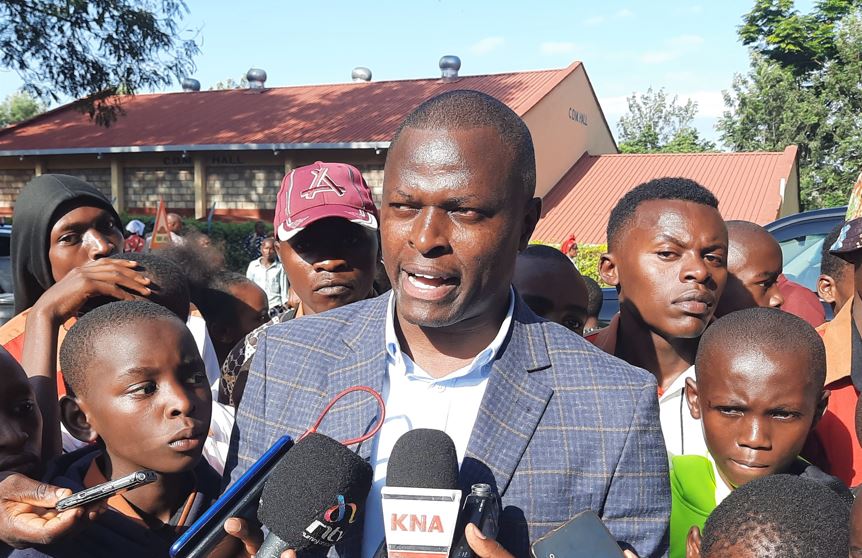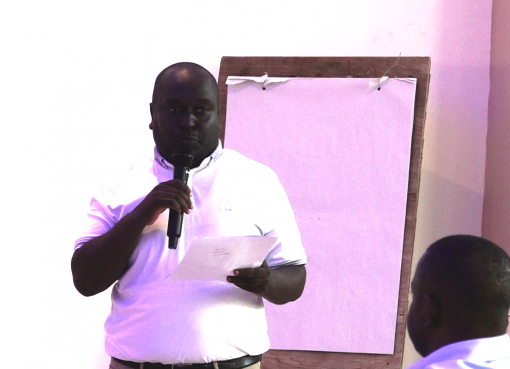The chairperson of the parliamentary committee on budget, Ndindi Nyoro, has praised the Finance Bill 2023, saying the collected money will ensure Kenyans get better services.
Nyoro has observed that the government is working to ensure Kenyans get better education, health, and infrastructure, saying the funds to implement development projects will be accrued through the Finance Bill 2023.
He explained that in the 2023–2024 budget, the Kenya Kwanza administration has allocated money in various sectors aimed at improving the livelihoods of the common mwananchi.
Speaking during the Catholic Diocese of Murang’a family day event held at St. Mary’s cathedral Sunday, the parliamentary budget committee chairperson faulted a section of leaders who are opposing the bill instead of working to ensure the views of their electorate are included in the bill before it sails through the parliament.
“In the next financial year’s budget, we have allocated funds to facilitate the recruitment of 8,000 graduates for a one-year internship.
He added that the education sector will get the lion’s share of Sh640 billion out of the entire Sh3.69 trillion budget to support various programmes in the sector, including Sh25.5 billion for junior secondary education, while another Sh30 billion will go to the Higher Education Loans Board.
Nyoro, who is also the Kiharu legislator, said for the government to work effectively for Mwananchi, it must have a pool of funds, saying the monies will be realized through the Finance Bill, which has since gone through second reading.
“Leaders in the opposition and those opposing the bill will have a chance Tuesday and Wednesday, when the bill will be tabled for third reading, to bring in their proposal for amendments. Let’s work for Kenyans instead of deceiving them and inciting them to demonstrate,” he appealed.
A section of leaders has threatened to call for a mass demonstration to oppose the bill, which they claim will raise the cost of living.
The leaders argue that with the current proposals to increase taxes, the majority of middle- and low-income earners will hardly afford the cost of common commodities.
“We are in a democratic country, and leaders have the right to oppose the bill, but let them utilize their positions as elected leaders and push for amendments to the bill on the floor of the House. Demonstrations will not solve anything,” added Nyoro.
By Bernard Munyao





